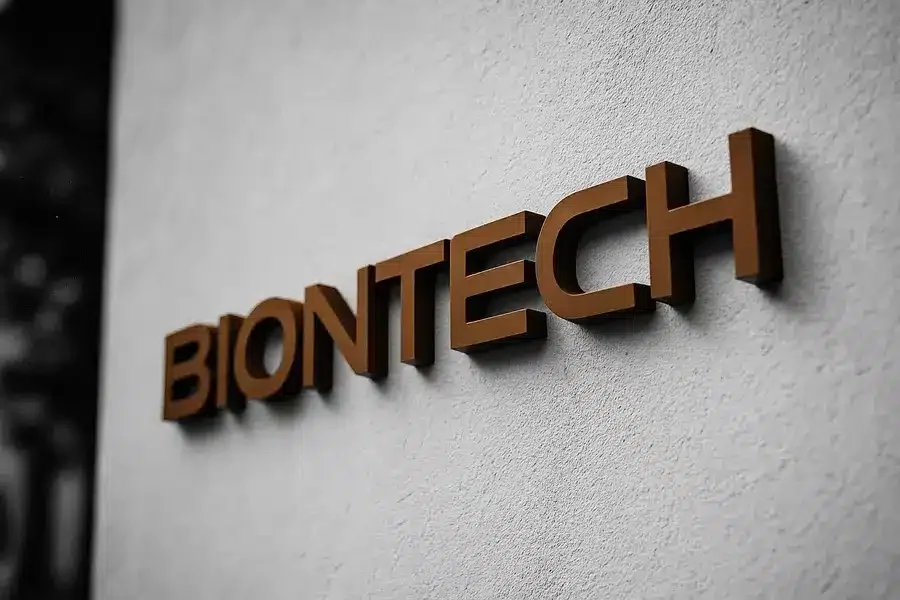FRANKFURT, Sept 8, 2025 – BioNTech SE (BNTX.O) and Bristol Myers Squibb (BMY.N) reported their experimental cancer immunotherapy achieved a 76% response rate in a Phase II lung cancer trial1.
The encouraging interim data positions the companies’ bispecific antibody pumitamig (BNT327) as a potential competitor in the 180 billion global oncology market.
- 76% of patients showed tumor shrinkage in interim analysis
- Drug targets extensive-stage small cell lung cancer patients
- Mean tumor size reduction reached 56.7% across participants
Trial Results
The Phase II study evaluated 38 patients with extensive-stage small cell lung cancer, with 29 participants (76.3%) meeting response criteria in the interim analysis2. The mean best percentage change in tumor size showed shrinkage of 56.7%, with 89.5% of patients achieving early tumor reduction3.
Pumitamig is a bispecific antibody that simultaneously targets PD-L1 and VEGF-A pathways, combining two established cancer treatment mechanisms. The drug represents a next-generation immunotherapy approach designed to enhance anti-tumor activity compared to single-target therapies.
Market Context
The results position pumitamig favorably against existing small cell lung cancer treatments. Current standard-of-care therapies typically achieve response rates of 60-70% in extensive-stage disease, suggesting the BioNTech-Bristol Myers combination may offer improved efficacy.
Bristol Myers’ existing cancer portfolio includes Opdivo (nivolumab), which generated 7.8 billion in 2024 revenue. The pumitamig data could support Bristol Myers’ oncology pipeline as several key patents face expiration pressure this decade.
Management Commentary
Bristol Myers highlighted the clinical significance of the interim findings. “The response rate and early progression free survival we are seeing in this interim analysis are encouraging and merit further investigation,” the company said in its press release2.
The companies plan to advance pumitamig through additional clinical development based on these Phase II results. Small cell lung cancer represents approximately 15% of all lung cancer cases, with limited treatment options for patients with extensive-stage disease.
Investment Implications
The positive trial data supports both companies’ oncology strategies as they compete in the crowded immunotherapy market. For BioNTech, pumitamig represents diversification beyond its COVID-19 vaccine franchise, while Bristol Myers gains a potential new growth driver for its established oncology business.
Investors will monitor upcoming regulatory discussions and potential pivotal trial timelines. The companies established their strategic collaboration in June 2025, combining BioNTech’s bispecific antibody expertise with Bristol Myers’ global commercialization capabilities4.
Not investment advice. For informational purposes only.
References
1Reuters (2025). “BioNTech, Bristol Myers’ immunotherapy shows encouraging tumour shrinkage in Phase II trial”. Reuters. Retrieved September 8, 2025.
2Bristol Myers Squibb (2025). “First Disclosure of Global Interim Phase 2 Data for BioNTech and Bristol Myers Squibb PD-L1xVEGF-A Bispecific Antibody”. Bristol Myers Squibb Press Releases. Retrieved September 8, 2025.
3Investegate (2025). “First Disclosure of Global Interim Phase 2 Data for BioNTech”. Investegate. Retrieved September 8, 2025.
4BioNTech (2025). “BioNTech and Bristol Myers Squibb Announce Global Strategic Collaboration”. BioNTech Investor Relations. Retrieved September 8, 2025.

